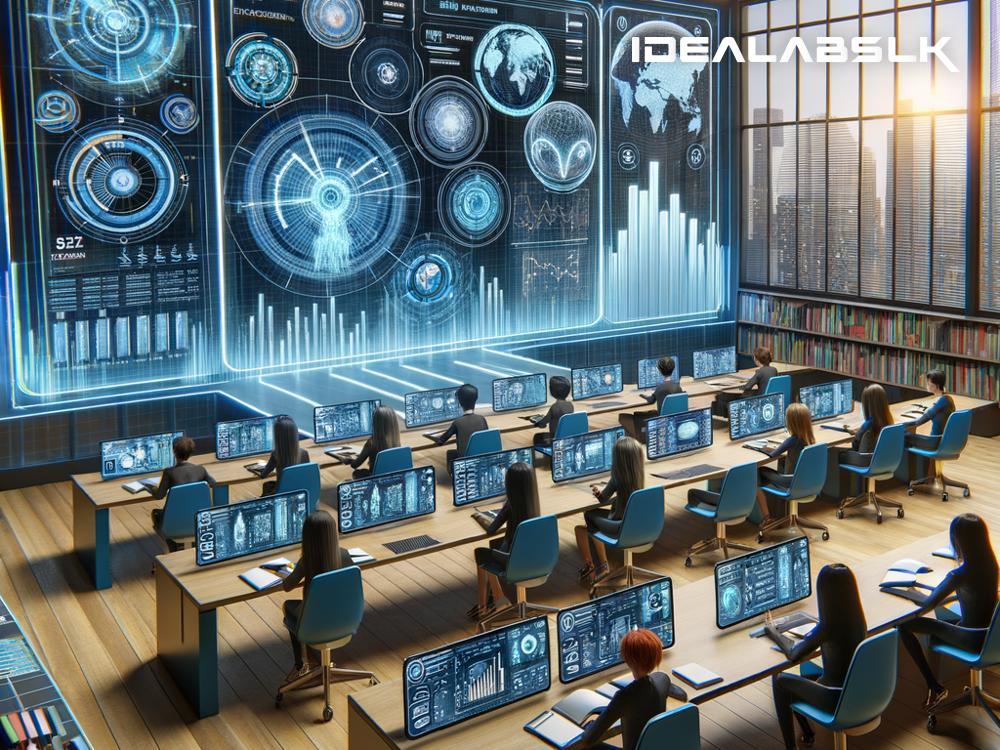Unlock the Future of Learning: The Marvel of Predictive AI in Education
In the realm of education, we're witnessing a revolution, not with textbooks or whiteboards, but with something far more sophisticated yet invisible: Predictive Artificial Intelligence (AI). Imagine a world where educators could foresee each student's educational journey, customizing learning experiences like never before. This isn't a fantasy; it's the promising reality predictive AI is working to create. Let's dive into how this sophisticated technology is reshaping educational outcomes in ways we never thought possible.
Simplifying the Complex: How Predictive AI Works
At its core, predictive AI is akin to a crystal ball, but powered by data and algorithms rather than magic. It analyzes past and present data to forecast outcomes. In education, this means it can predict how well students are likely to perform in their academics or how they might respond to different teaching methods.
Imagine you're planning a road trip. You'd look at maps, check the weather, and maybe even ask friends for advice on the best routes or stops. Predictive AI does something similar, but on a grand scale. It gathers vast amounts of data, ranging from students' grades, attendance, participation in class, and even subtle factors like engagement levels on digital learning platforms. Then, like a supercharged GPS for education, it helps chart the best course for each student.
Personalization: The Heart of Predictive AI in Education
One of the most groundbreaking impacts of predictive AI is the ability to offer personalized education. Every student learns differently. Some might excel in visual learning, while others prefer listening or hands-on experimentation. Predictive AI can identify these unique learning styles and preferences by analyzing data from various interactions students have with educational materials.
This means a teacher, armed with insights from predictive AI, can tailor lessons that resonate best with each student or group, thus enhancing engagement and improving outcomes. It’s as if each student gets a custom-built educational journey, designed to fit their specific needs and talents.
Early Warning Systems: Catching Challenges Before They Grow
Another marvel of predictive AI is its ability to act as an early warning system. By constantly analyzing students' performances and engagement levels, it can flag potential issues long before they become apparent to even the most observant teachers.
For instance, if a student starts showing a decline in quiz scores or participation rates online, predictive AI can alert educators. This enables timely interventions — maybe the student needs help with specific topics, more encouragement, or resources to bolster their learning. It's like having a guardian angel that ensures no student falls through the cracks unnoticed.
Bridging Gaps: Making Education Accessible
Predictive AI is also a powerful tool in democratizing education. It helps identify gaps in learning opportunities and resources. For example, in regions with limited access to quality education, predictive AI can guide the distribution of resources — from textbooks to tablets — based on the areas of greatest need and potential impact. It's about optimizing resources to ensure every student gets a fair shot at success, regardless of their background or location.
Privacy and Ethics: Navigating the Challenges
With great power comes great responsibility. As much as predictive AI promises to transform education, it also raises significant privacy and ethical concerns. The idea of constantly being analyzed by algorithms might not sit well with everyone. Therefore, it's crucial to strike a balance, ensuring that the use of predictive AI in education respects student privacy and consent.
Guardrails must be established to protect sensitive data and ensure that the insights generated are used solely to enhance educational outcomes, not for any form of discrimination or unfair advantage.
Looking Ahead: The Future of Education with Predictive AI
As we stand on the brink of a new era in education, the potential of predictive AI is both exhilarating and daunting. It offers a vision of education that is more personalized, inclusive, and efficient. But it also challenges us to navigate its implementation wisely, with a keen eye on ethics and privacy.
The road ahead is full of possibilities, and predictive AI is poised to be a key driver in unlocking the full potential of every learner. As we embrace this technology, we must do so with care, ensuring it serves as a beacon of progress, lighting the way to a brighter educational future for all.
In a nutshell, predictive AI isn't just changing how we teach; it's revolutionizing how we think about education's possibilities, proving that the future of learning is not written in the stars, but in algorithms. And this future is here.

